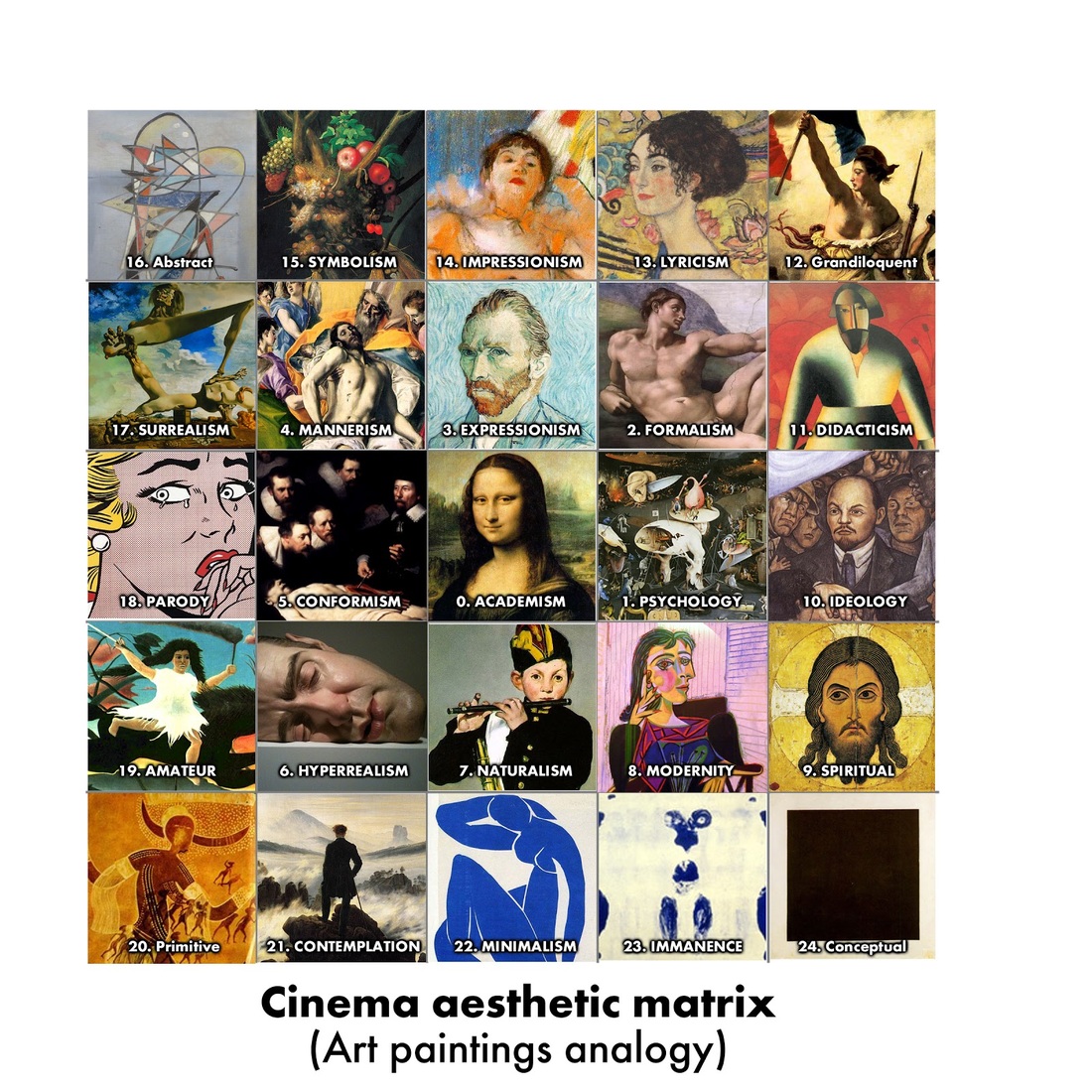Pay attention to the ARTISTIC REPRESENTATION of the human face/body in these paintings, and how it differs from the ones right next to them, and even more from the ones further away. Some go for versimilitude, or strive to attain it at least, others never try to go near it and instead propose a very personal INTERPRETAION of the anthropomorphic representation, more personal, more simplified/stereotypical, or on the contrary a more complexified/transmuted version of a human figure. Same goes with the art of Mise en scène in cinema, and we see the same affinities and contrasts between various branches of cinema history, the realists, the verbose, the minimalists or the abstracts... (to cite only a few of them possibilities discovered by filmmakers over the years). Would this work for music, too?
0 Comments
You should not be stopped by that. Messiaen is such a complex figure that you should forget all about the religious approach. He is very sensual, in his music as in his life. His first wife went crazy or something and he married after a while a young pupil, a pianist called Yvonne Loriod; they are passionately in love, together. And this is a sin. And his music is a sin, too. It is also - also - very abstract in its scales, a very intuitive departure from the traditional scholarship into the realm of rhythmics, Indian, Greek, very pagan.” — Iannis Xenakis, a general nonprogrammicist, who was taught by Messiaen, argued that catholic mysticism is irrelevant to Messiaen’s music. I do not really agree with Xenakis here. I do think Messiaen’s music is very sensual, sometimes to the point of ecstasy, but removing the mystic-Catholicism from the equation is an error. Rather, I think the two elements travel in balance with each other; sensuality and ecstasy are important to Catholic mysticism (ie. the Ecstasy of St. Theresa) but it’s a holy and pure sensuality, not carnality. They’re not mutually exclusive and his music isn’t “sinful” in any sense.
I think where Messiaen’s music loses some of its potency (Boulez writes about this) is the inclusion of “Indian” and “Greek” rhythms, because this inclusion reeks of a weak pan-spirituality and detracts from the music’s concentration on the Catholic juxtaposition of sacred/sensual. There are other criticisms of Messiaen's music but overall we're dealing with one of the 20th century's most uniquely carved souls. |
AuthorTyler Versluis is a composer and pianist. Archives
October 2015
Categories |

 RSS Feed
RSS Feed
